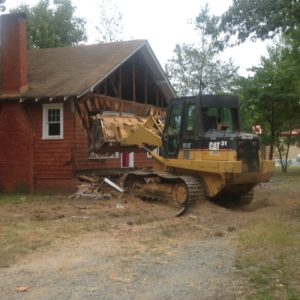What type of investor are you?
 Have you given that some thought? Do you go after growth tracking trends that require the insight of whether its occurring or not or are you into value focusing on discounts to value and income with the ability to understand what exactly value is? Do you actually research your real estate and stock/bond investment and business decisions? Blindly putting money to work (that one may call investing) into real estate, stocks, bonds, or even business operations isn’t investing -it’s called speculation.
Have you given that some thought? Do you go after growth tracking trends that require the insight of whether its occurring or not or are you into value focusing on discounts to value and income with the ability to understand what exactly value is? Do you actually research your real estate and stock/bond investment and business decisions? Blindly putting money to work (that one may call investing) into real estate, stocks, bonds, or even business operations isn’t investing -it’s called speculation.
Did you participate in the Dot-com bust, 9-11 Stock Market Drop (into Fall 2002), lose a real estate investment (to foreclosure and/or quick sale loss), or participate in whats coined as the Flash Crash (in the stock market) on May 6, 2010?
In only one of those events I referenced earlier did I participate in -The Housing Bust of 2006-2011. No I didn’t lose any houses but have certainly incurred losses. I would suggest if you’ve taken big hits in more than one of those and/or tend to lose money no matter what the direction, your speculating. Stop jumping from one idea to another and focus on learning one discipline. Learn how to invest -really it’s that simple; however, it takes commitment, discipline, physical & mental energy, and time. I pay particular attention to my investments that under perform -looking at the decisions that both initiated the investment decision and direction of it. With the goal of not repeating a poor decision.
For this reason, I am a Contrarian Value investor in all realms of life. Websters defines contrarian as:
Main Entry: con·trar·i·an
Pronunciation: \kən-ˈtrer-ē-ən, kän-\
Function: noun
Date: 1657
: a person who takes a contrary position or attitude; specifically : an investor who buys shares of stock when most others are selling and sells when others are buying
I seek out those investments that I deem (note this is the area where we make mistakes) are of interest due to there ability to throw off income (in the form of rents, dividends, and/or distributions) and are at a discount to there true worth. Typically these undervalued investments are neglected, run down, and are cast offs due to some type of dysfunctional obsolescence (if only temporarily) in the eyes of the public. Or it could simply be that everyone is running scared for no real reason other than temporary hysteria. In other words, I like to buy when everyone else is running away and take some profit off the table when everyone comes back to eat. Buy low. Sell high. It takes patience and discipline. The key -being paid to wait and that is why it must cash flow.
Real estate has many opportunities at this moment -of coarse the key is funding the purchase (click on win/win article). It is this very reason that opportunities exist. With the lack of 1-4 housing loans (for those over 4) and commercial funding extremely tight, your competition is limited. I’ve got an investor that is getting a solid $575/mo rental that he’ll have $23k into -and its not in the worst of the worst locations. Of coarse its not the best either; however, with stabilization of the markets who wants to bet it won’t be worth somewhere between $45k to $75k when that normalcy occurs? Not bad huh?
Investing is not sitting in your underwear ‘day trading real estate’ as some may proclaim -if it works this would be a business as one is totally dependent on a constant flow of inventory to turn -totally speculating & attempting to find short term deviations on property not even viewed. I know many people that are stuck with those steals they were going to resell only to learn that the local market knew the true value. While the speculator had no idea other than it’s “perceived” value compared to what there vision of value was from their own backyard. Truly most that attempt this are ‘dreamers or the naive’ whom deem wealth can be created without work. Maybe for the minority but certainly not the masses. As a generalization, save your money on programs that promote buying great deals on real estate anywhere in the world (not just your own backyard). BE REAL -you need to walk the property & neighborhood.
As a value investor, I seek real estate investments that are problems to others. What does that mean? Whether the property is in pristine condition or under demo, it is a problem for somebody -usually due to financial and/or emotional issues. To be on top of my game and have the ability to quickly take action, I must know the market (from the street, neighborhood, and city standpoints) and have a plan of action with the ability to pull the trigger now. The underlying basis of my real estate investing, has been buying real estate, fixing it up, and putting it into my rental portfolio. Every year I look at that portfolio and take some profit off the top when it’s clear that a majority of the value (typically forced appreciation) is realized. This speeds the realization of profits, helps minimizes taxes (with the investment being categorized as a long term capital gains), and creates the ability to diversify by redeploying the funds into new undervalued investments (read: Rinse & Repeat). One will note that I’m now buying rental property versus only purchasing one rental in the last 5 years. I have had trouble finding value that paid you to wait during the few years of euphoria that’s pushed growth beyond its cash flow value. Would you agree it can be a scary time to commit? One needs to have a long term investment philosophy. Sure -I may not extract a profit immediately. However as cycles teach us, odds are that a return to normalcy will eventually return with the stabilization of the housing market and one will be able to realize the forced appreciation (from buying at a discount) without the need of generalized city (or even national) wide appreciation rates. Remember though: you’ll want to be paid to wait and that requires positive cash-flow.
I think I know why some people tend to be averse to stock investing (or mutual funds). Everybody loves the rah-rah excitement of big returns -hmmm sounds eerily reminiscent of our real estate markets in the past few years right? Are most just blindly betting? I’ll invest in “X” cause it’s got great (reportedly) growth numbers. I can remember before the ‘Dot-Com’ bust studying balance sheets, cash flow statements, and P&L’s. People would recommend this & that all excited but could never explain financially how the investment was doing. I’d study the thing and it was a financial wreck. Really no different than what a ‘real‘ real estate investor should do with analyzing a new investment. Even stock funds (mostly growth) went after the same thing -sort of like a herd mentality. And now the saying goes: “Buy & Hold” is dead. Tell them Tyler says: B.S.
Just like real estate with value investing in stocks, one is usually buying that which is beat up because of some tarnished reputation whether earned or not. Value investing takes time more often than not and doesn’t occur with day trading. I believe the flash crash that occurred earlier this month was a 1,000 point panic due to computer model trading. That is something a value investor can take advantage of. Did you get caught in a Stop-loss sale? Did you not limit the price lock? Why not? One should of investigated this -so again, who’s to blame the stock market or you. I picked up some great dividend value stocks with some limit orders I had placed at 10-20% below the daily trading value on that day. This was an opportunity based on market hysteria that had nothing to do with reality.
Did you know there are stocks out there trading near book value throwing off a healthy dividend while a standard (very generalized) stock is valued at 2 times book? Investigate and invest. Find a company with management that is turning the company around (based on the numbers) and/or let time heal that tarnished reputation and one could simply double their investment by the stock moving to an average valuation. Remember: this is a generalization and you still need to analyze the underlying fundamentals of any investment.
Trust me I don’t mean to make it sound that simple -because it is not. It take work. It takes commitment to learning what and how one invests rather than just randomly throwing a dart. Care to learn how?
So is this a time to buy? ABSOLUTELY. More so in real estate (as a generalization). However, you’ve got to due your homework and find a means to fund your deal. Take the blinders off, sharpen the pencil, and don’t let static scare you from good real investments. My money is made when the herd is running away -I just don’t necessarily harvest it till they come back to graze. Think like a contrarian and focus on true value not ‘pie in the sky’ growth.
May 22nd, 2010


